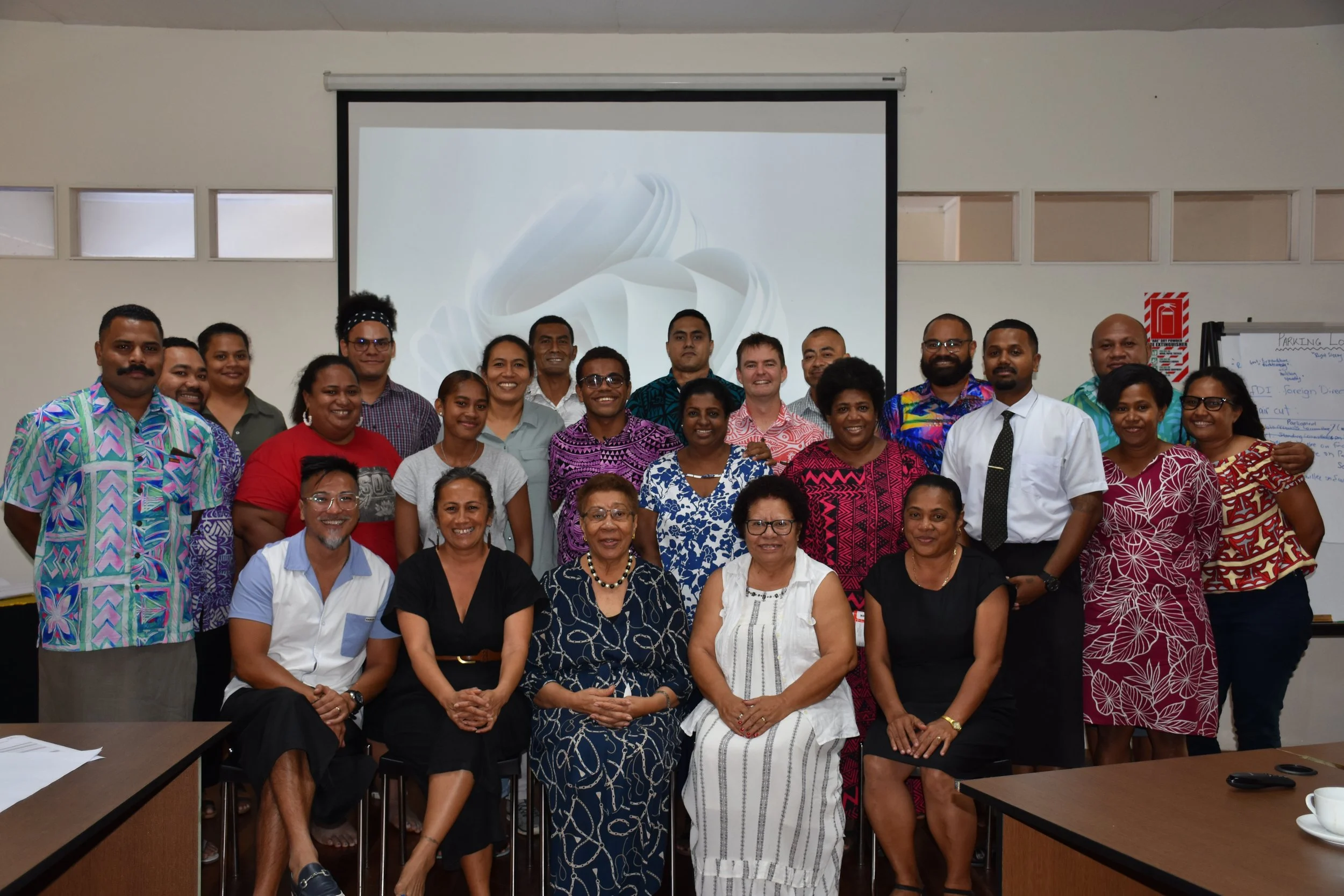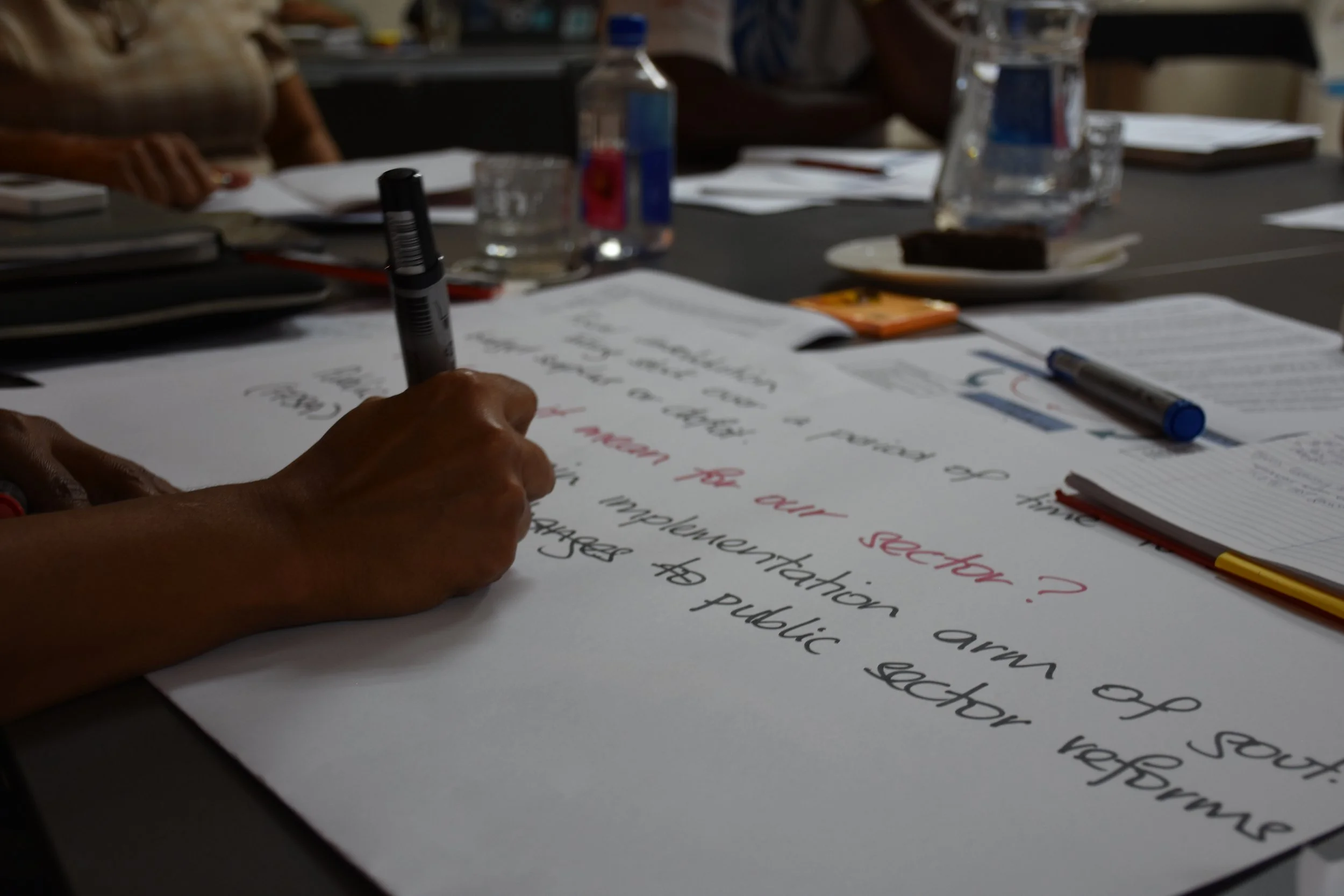
Debt in the Pacific
New Release: Debt Dynamics in Fiji: Impacts, Challenges and Strategies for Sustainable Economic Development
Fiji is grappling with a profound and complex public debt burden. Political turbulence, anaemic growth, natural calamities, and external economic shocks have all played their part. The global financial meltdown in 2008 and catastrophic events like Cyclone Winston in 2016 wreaked havoc on Fiji's infrastructure and decimated its primary revenue channels, particularly in the tourism sector. The advent of the Covid-19 pandemic in 2020 only intensified these economic tribulations.
Already, Fijians are feeling the weight of this debt burden through new fiscal measures such as increased taxation and constraints on government spending, which were recently introduced in the country’s latest budget. An increasing and higher incidence of limited fiscal revenue is also being spent on debt servicing than on essential social sectors, threatening to channel funds away from investing in long-term economic development and the UN’s Sustainable Development Goals (SDGs).
The way Fiji manages its debt, strikes a balance between basic needs and developmental aspirations, and aligns its debt management strategy with long-term goals can significantly influence its economic trajectory.
This paper, building off consultations in 2023, aims to situate the country’s public debt burden within the context of its economic performance and fiscal policies, and attempts to highlight the complexities and challenges inherent in balancing growth aspirations with fiscal responsibilities. It also tries to reveal the significance of Fiji’s public debt burden not merely as a reflection of numerical indicators but as an issue that is deeply intertwined with the nation’s socio-economic well-being, policy frameworks, and strategic priorities.
Pacific Island Countries (PICs), already struggling from the impacts of the climate crises, have seen their debt levels deepen following the economic impacts of COVID-19. The closure of key revenue-earning industries (particularly tourism, exports in raw materials, minerals, oil and gas, agriculture produce) undermined the ability of PIC governments to raise revenue and saw them look to external donors for direct budgetary support and loans to sustain economies during and after the pandemic. Requests for debt cancellation were rejected.
The issue of debt is now being discussed in relation to the COVID recovery and the need to lower debt levels. Policies to increase revenue raising, cut government spending, and boost economic growth must all be done with proper governance, accountability, and inclusion. Debt responses must treat austerity as a last resort and instead must target those most able to contribute to government revenue.
For the Pacific, economic growth plans are increasingly being framed around the blue economy. Many international financial institutions as well as donor governments have 'blue economy' strategies, including frontier industries like deep sea mining, pharmaceuticals, and the financialization of ocean carbon storage, none of which are sustainable, that are being pursued in the Pacific Ocean.
The coupling of COVID economic recovery responses with the ambitions around the blue economy presents a threat to the way that PICs can independently determine for ourselves what the best response to COVID is for their communities.
The “Blue Recovery” is being raised by bodies such as the OECD who argue that it is a perfect time to focus on and expand existing ocean-based industries such as fisheries and tourism which are significant industries in the PICs. The sustainability rhetoric of the blue economy belies the commercial interests in frontier industries like deep sea mining, pharmaceuticals, and the financialization of ocean carbon storage, none of which are sustainable or based on PIC lead development.
-

Oceanic Outlook Newsletter
Oceanic Outlook is a regular newsletter that aims to go beyond the headlines to provide a regular wrap up of the critical intersection of economic development, climate resilience, and financial sustainability in Pacific Island nations.
-

Fiji Debt White Paper
This report situates Fiji’s public debt burden within the context of its economic performance and fiscal policies, and attempts to highlight the complexities and challenges inherent in balancing growth aspirations with fiscal responsibilities
-
PANG/TWN Debt Workshop Outcome Statement
Representatives and associates of national and regional civil society organisations held a two-day workshop on debt and other key components of Fiji’s fiscal policies and plans. The following outcomes statement reflects what was discussed and recommendations for government.
-
PANG/Third World Network Civil Society Debt Workshop
On April 26/27, PANG and Third World Network co-hosted a civil society workshop on Fiji’s national debt. Participants were presented with and had the opportunity to consider and discuss nuances of Fiji’s national debt and government borrowing, Fiji’s debt profile, its drivers and dynamics, and how debt is/should be governed. Click through to see the resources from the workshop.



